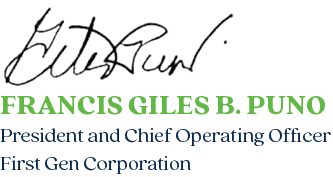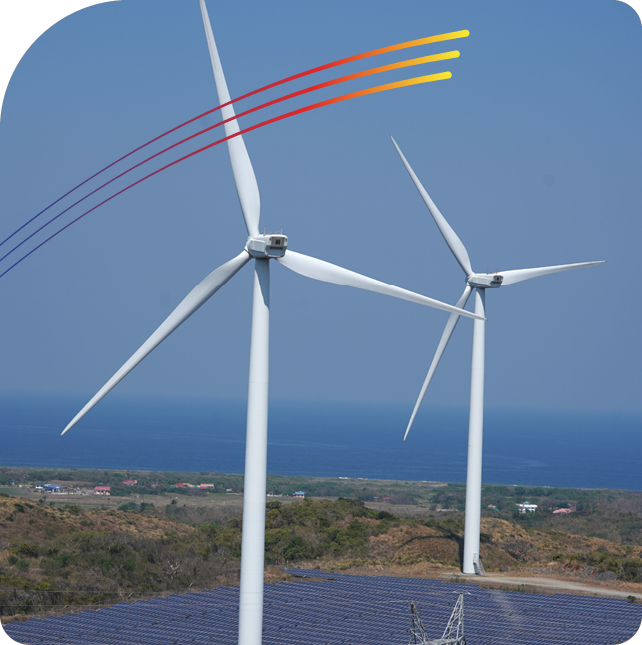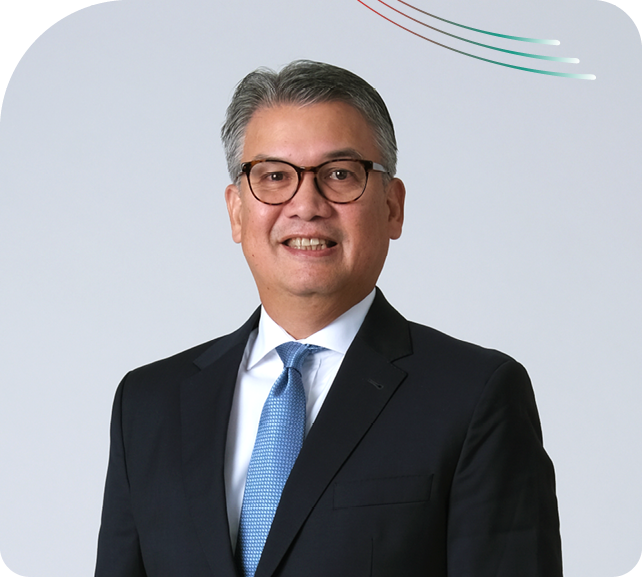
Dear Stakeholders,
We are experiencing uncertain times. Natural disasters more than ever provide evidence of the existential threat from climate change and the need for urgent action. The UN Environment Programme’s 2022 Emissions Gap Report states that “wide-ranging, large-scale, rapid, and systemic transformation is now essential to achieve the temperature goal of the Paris Agreement.” The consensus and feasibility to limit global warming to the 1.5 degree target is increasingly challenged.
We are fortunate to finally see the worst of COVID-19 behind us. We are, however, moving ahead with a backdrop of pessimism and uncertainty driven by deteriorating geopolitical pressures that is worsening a global economic slowdown. Economic managers are challenged to address high inflationary conditions and have responded by raising interest rates. The days to access cheap financing are gone for the foreseeable future. The Russian invasion of Ukraine and the worsening US-China relations are driving geopolitical concerns and are leading to a more divided, fragmented world. At home, we are not spared by the higher prices of electricity, imported fuel, and basic commodities made worse by the reduced value of the Philippine Peso. It is not a pretty picture to say the least.
If we pause to figure out how to best move forward, we like to think that more than ever, First Gen and, our parent, FPH’s unified mission to forge collaborative pathways for a decarbonized and regenerative future is even more relevant. Aligning the business model of First Gen’s clean and renewable energy portfolio with a common mission and purpose is an effective way to align, engage, and inspire our talent within our organization to move ahead with optimism despite uncertainties.
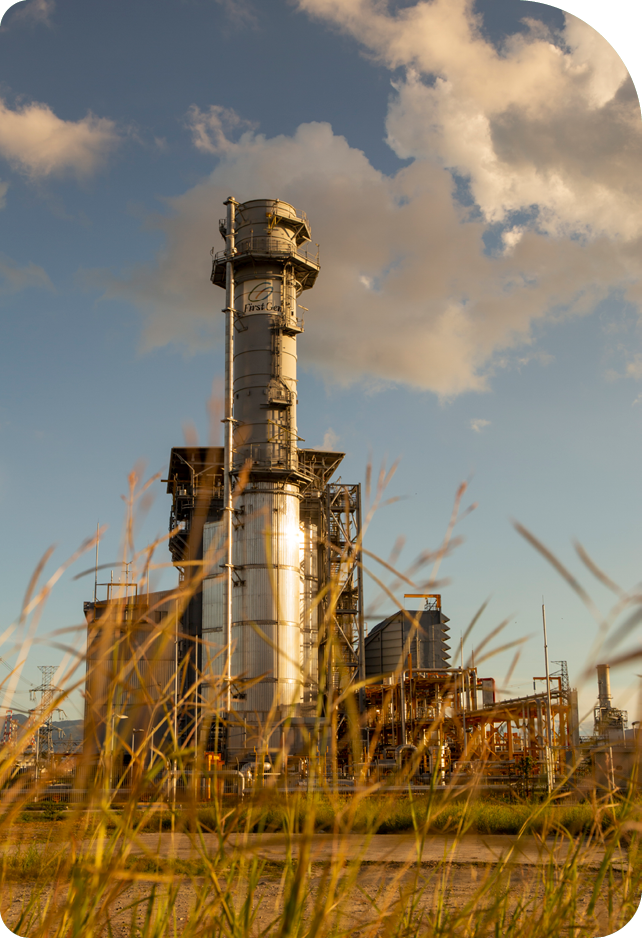
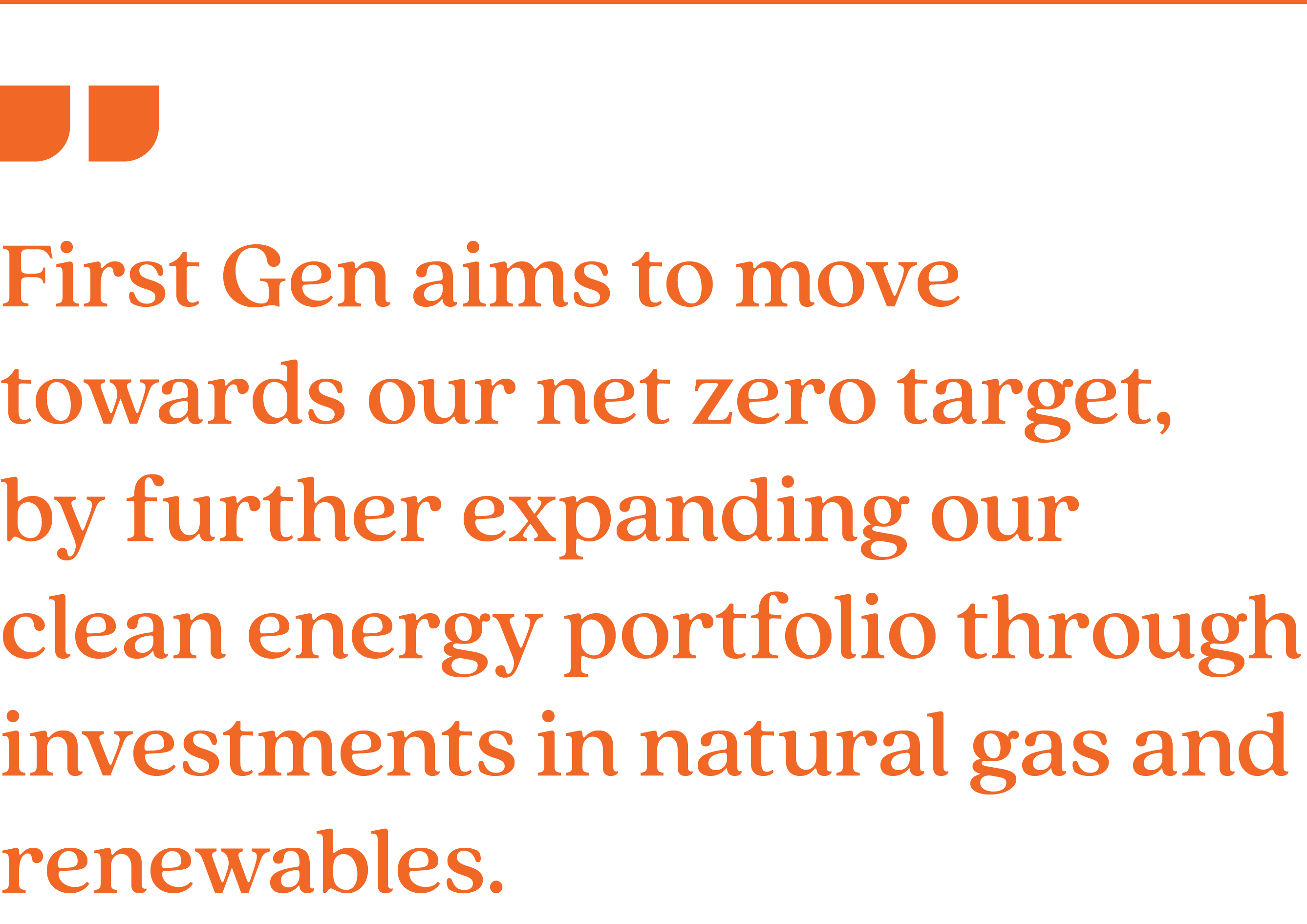
Since our declared commitment to stay away from coal in 2016, I am proud to say that we have persisted in our mission to make a clean and sustainable impact as a major player in the energy industry, especially in the midst of a compounding climate crisis.
Despite being a relatively small contributor to global emissions, the country still struggles as the most vulnerable nation in the battle against climate change and global warming, according to the World Risk Index 2022. In 2022 alone, we faced 18 tropical storms, with Super Typhoon Paeng causing severe flooding in Maguindanao, and Tropical Storm Agaton causing landslides in Leyte.
In recent years, the government has made positive steps and declared a moratorium on the construction of new coal-fired power plants—an effort to transition away from coal and move toward the use of more renewable energy. The Philippine power market is also becoming increasingly democratized towards a more sustainable energy system, wherein the Retail Competition and Open Access (RCOA) allows qualified power consumers to choose their power supplier. In fact, under the Green Energy Option Program (GEOP), even customers with smaller power demand will be able to choose renewable energy sources for their facilities. With all these, the country is increasing opportunities to heighten decarbonizing efforts towards a larger proportion of renewables in its fuel mix.
Staying in focus: Moving beyond where we’ve begun
In response to the current developments in our country’s energy industry and platform, First Gen aims to move towards our net zero target, by further expanding our clean energy portfolio through investments in natural gas and renewables. First Gen’s diverse portfolio is tailor-fit to the country’s growing demand for clean and renewable energy.
We are investing heavily in LNG infrastructure in preparation for the eventual depletion of the offshore Malampaya natural gas field, the country’s only indigenous natural gas source, and to address energy security issues that will ensure uninterrupted power for our daily activities. As has been widely reported, the Malampaya natural gas field is quickly being depleted, and we are already experiencing more frequent supply disruptions. It is estimated that by 2027, Malampaya could no longer reliably supply natural gas to power plants that account for almost 20% of the country’s power.
Our offshore LNG terminal, which is nearing completion, will enable us to receive and regasify LNG imported from other parts of the world, ensuring we have enough fuel to meet our energy needs. We believe that this investment in LNG infrastructure will play a crucial role in enabling us to achieve the global goal of Net Zero by 2050.
Additionally, we are confident that our continued developments in both natural gas and LNG are helping the country wean off coal. We have determined that natural gas serves as a reliable bridge to renewable energy sources, since our natural gas plants can quickly generate power and complement the intermittency of solar and wind power plants. This can also complement other renewable energy sources like hydro and geothermal, providing energy security throughout the transition.
To truly achieve a sustainable and decarbonized energy system, however, natural gas must pave the way for more sustainable and renewable energy sources. As renewable energy becomes more reliable, natural gas will eventually be phased out and replaced with other clean sources such as green hydrogen or decarbonized by emerging technologies, such as carbon capture. As such, First Gen is keeping abreast of developments in these technologies, while also exploring the use of nature-based solutions to offset carbon emissions.
The country’s ambitions for a cleaner energy mix are contingent on increased clean energy capacity. The DOE’s Philippine Energy Plan (PEP), for instance, illustrates a massive growth in natural gas and renewable capacity in the near future. As a response to this need, we are diligently working towards significantly growing our portfolio to 13GW by 2030, aiming for a majority of this capacity to be powered by renewables.

Financial Highlights
First Gen’s Recurring Net Income (RNI) attributable to equity holders of the Parent totaled USD 265.4 million, a 5.2% increase from the previous year’s RNI. This growth was primarily due to EDC’s augmented geothermal revenues from higher average selling prices and higher generation volumes, resulting in a greater income contribution. Additionally, San Gabriel’s income contribution increased as there were fewer outage days in 2022.
FG Hydro incurred lower replacement power costs because of lower volumes resulting in a higher income contribution. However, Avion had a lower income contribution driven by higher average fuel prices, as well as higher interest expenses from the PHP 2.8 billion loan it availed in December 2021. San Lorenzo likewise had a lower income contribution due to higher interest expenses from its USD 158 million loan drawdown in 2022, while the Santa Rita plant’s income contribution decreased due to increased depreciation expenses from newly installed turbine blades.
Our financial management strategies prioritize selecting projects that are aligned with our principles, maintain our competitive edge while operating responsibly and profitably. First Gen has successfully attracted investors who appreciate our dedication to implementing environmentally, socially, and governance (ESG)-compliant initiatives in our business.
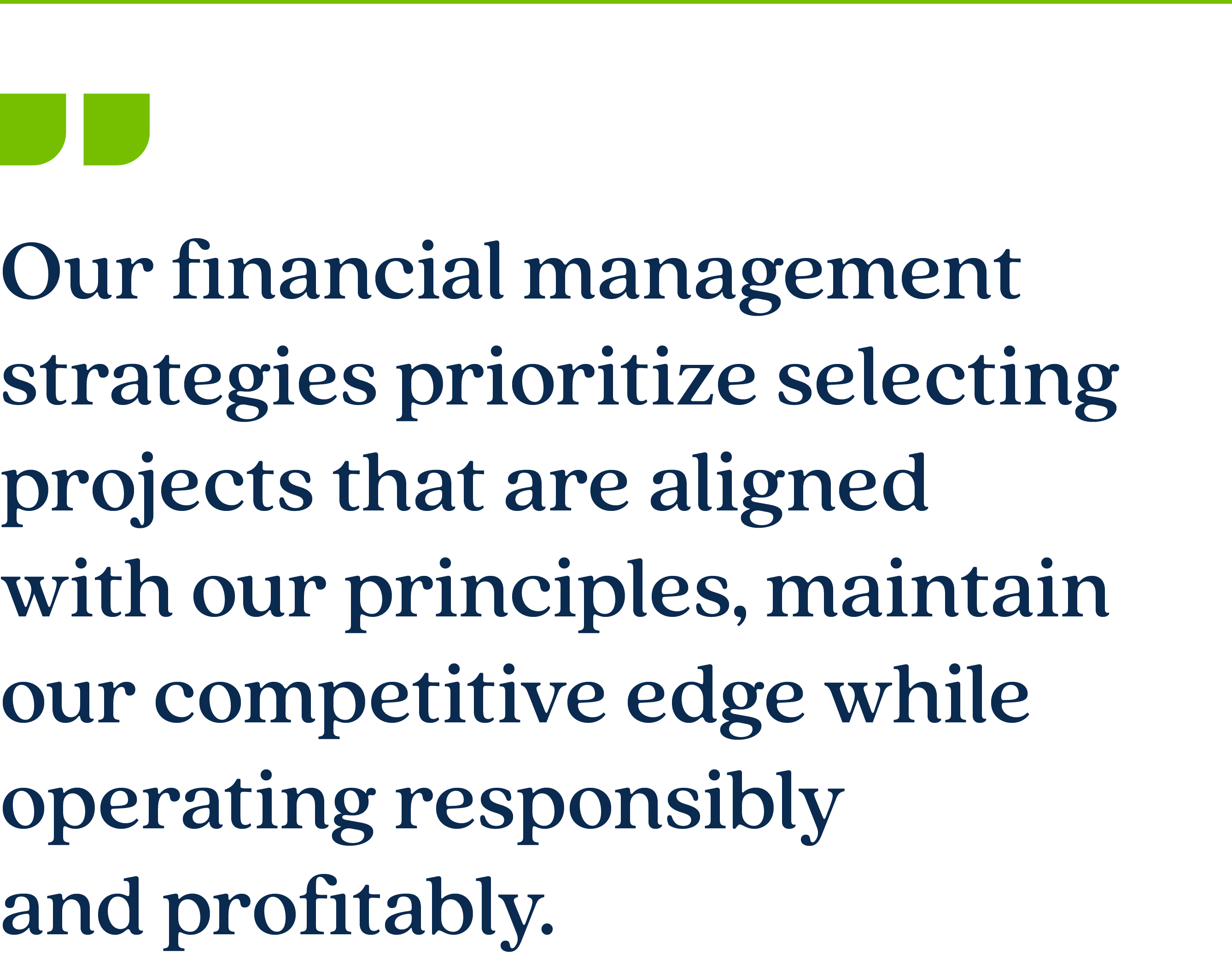
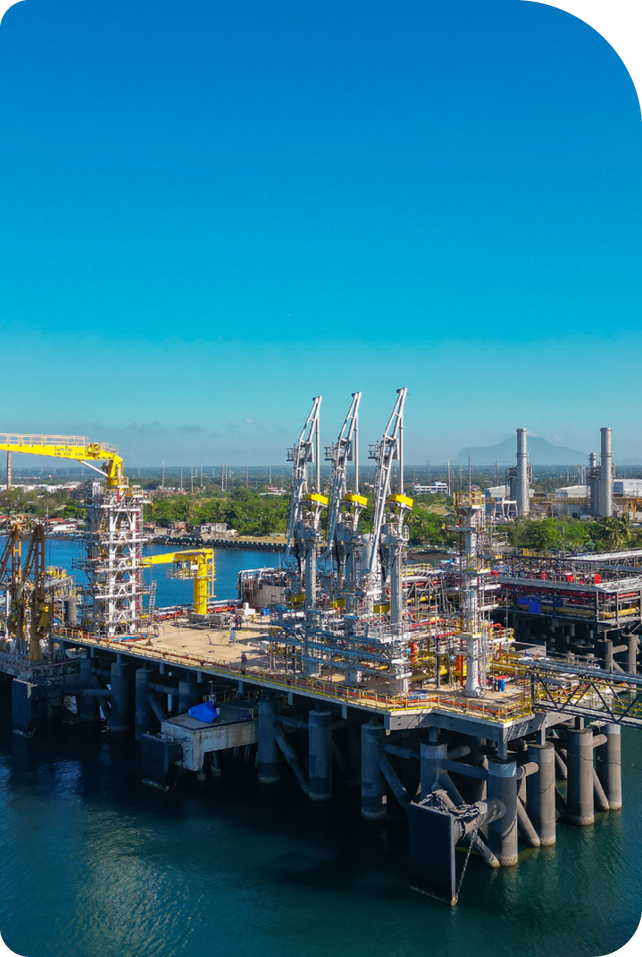
Operational Highlights
Due to the depletion of the Malampaya gas field, natural gas supply remained constrained, resulting in gas restrictions at our gas plants in FGCEC. However, Santa Rita, San Lorenzo, and Avion were able to provide electricity to customers and the grid by having the flexibility to operate using liquid fuel. And once LNG is available, these three plants will have the capability to run on Malampaya, imported LNG, and liquid fuel thereby addressing the key issue of energy security. We are keen to advance the development of the 1,200-MW Santa Maria Combined Cycle Gas Project. With the LNG Terminal in place soon, fuel supply issues should be a thing of the past.
We inaugurated the 3.6-MW Mindanao 3 Binary Power Plant project in Kidapawan last April 27, 2022 as part of our renewable energy portfolio expansion. Meanwhile, the construction of the 28.9-MW Palayan Binary Project is ongoing, with the aim of starting commercial operations by September 2023.
The 100-MW Aya Pumped-Storage Hydro Power Project is scheduled to start construction in the third quarter of 2023. The project will supply ancillary services to the grid and is designed to pump water from its reservoir to its upper reservoir for storage when there is excess electricity at low cost. The stored water is then released back to the lower reservoir to generate electricity when demand increases. We are also undertaking pre-development activities for our run-of-river projects, including the 32-MW Bubunawan, 33-MW Tagoloan, 30-MW Puyo, and 39-MW San Isidro projects.
Currently, we are developing our first three battery energy storage systems (BESS) adjacent to our geothermal sites in Bacman, Southern Negros, and Tongonan, and our fourth BESS in Northern Negros will follow shortly after. Once completed, these BESS projects will optimize the existing geothermal resources and also provide ancillary services to the grid.
First Gen intends to pursue opportunities in wind and solar. The construction of 1-GW of existing on-shore wind concessions shall begin after planned grid developments by the NGCP are completed, while the 3-GW off-shore wind concessions in the Guimaras-Iloilo-Negros Occidental area is expected to be done by 2030. Moreover, the potential for a 100-MW solar farm in the Leyte geothermal sites and a 30-MW wind farm in the Burgos site is being studied.
We also secured two RE service contracts for solar and wind from the DOE at the end of 2022. In 2023, we have further secured 14 more service contracts. We will focus on pursuing the activities we committed to under our agreed work program with the DOE.
Believing in a sustainable and regenerative future
The transition towards a decarbonized world is an important and urgent initiative that requires collaboration among all stakeholders, including the government, private sector, civil society, and the general public.
This critical transition is where First Gen’s identity and mission has always been rooted and, throughout the years, we simply anchored ourselves to this commitment. We are pleased that many in the industry are joining us in our mission.
I am honored and grateful to all of the people who have remained confident in our chosen path, and have given unwavering support to us in the dedicated pursuit of our mission. I continue to enjoin others to embark on this critical journey with us towards a decarbonized and regenerative future.
